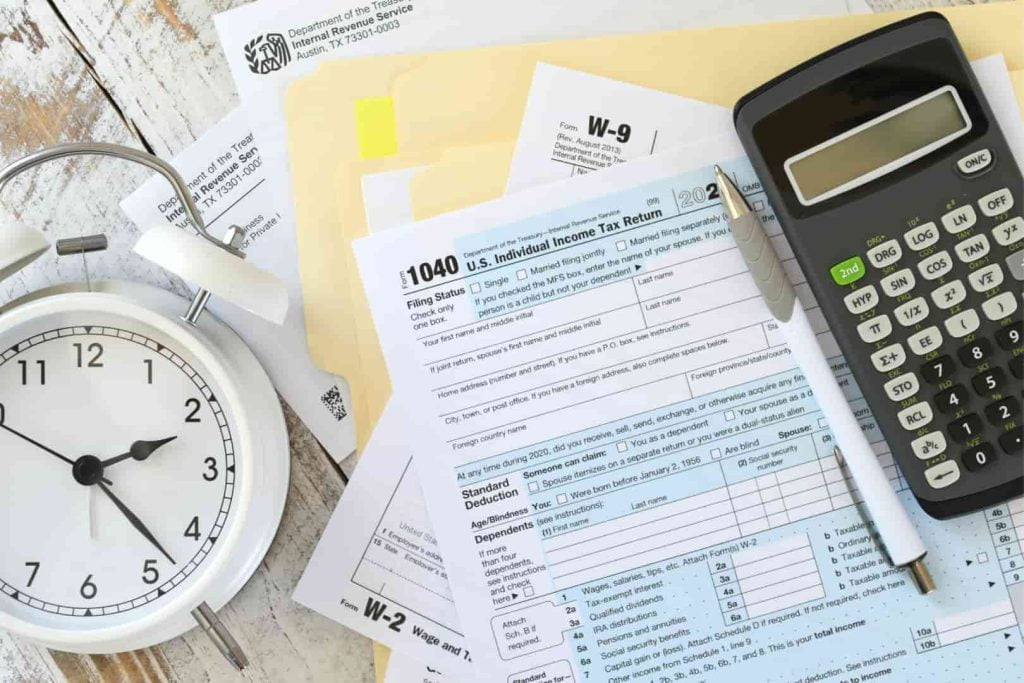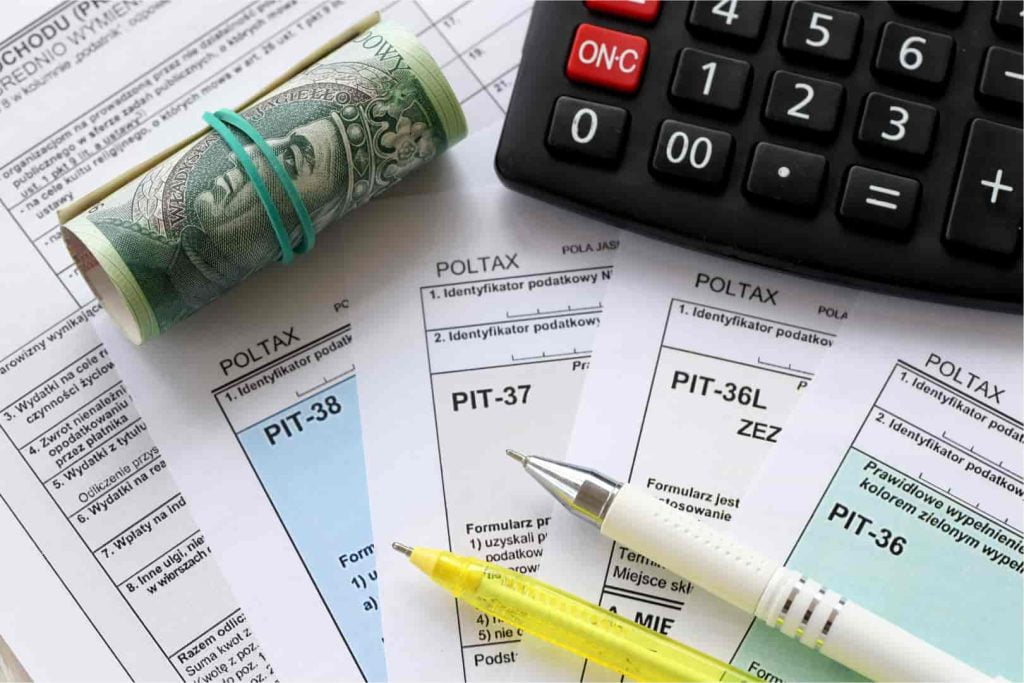
Allow us to change the way you look at how to file taxes in Germany – yes, even if you are new here. Navigating tax season in a new country can be more perplexing than finding a decent flat in Berlin on a budget, but hey, who said you have to do it all alone?
Forget about wading through the dense tax code or trying to understand complex jargon in German. We have distilled the essentials for you, from key dates that you should not miss out on to tools that will make your tax filing journey less of a chore and more of a checkmark on your to-do list.
Don’t worry, you got this and we got you on this!
Make sure to read: A Quick and Simple 101 Guide to Vegan Dining in Berlin
Understanding How to File Taxes in Germany: An Overview
At first glance, the German tax system may seem rather complex, but we have narrowed down the important bits for you. Let’s go through the breakdown together, shall we?
Residence: Residency determines your tax obligations. As a resident, you’ll pay taxes on your worldwide income. Non-residents generally only pay on German-sourced income.

Income tax: Germany has a progressive income tax system. The more you earn, the higher percentage you pay.
Solidarity surcharge: A surcharge is usually added to your income tax to support specific regions.
Church tax: If you are a registered member of any recognised church, you are also expected to pay a church tax that goes towards maintaining the key requirements of the church.
Tax Classes (Steuerklassen) and its Implications for Expats
Your tax class essentially determines how much tax is withheld from your salary.
| Class | Description | Implications for Expats |
| I | Single without children | Less tax withheld initially, may require tax return later. |
| II | Married, spouse earns no income | More tax withheld initially, may benefit from tax return. |
| III | Married, both spouses earn similar income | Balanced withholding for both partners. |
| IV | Married, one spouse earns significantly more | More tax withheld from the spouse earning higher. |
| V | Widowed/Divorced, single parent | Similar to Class I with adjustments for children. |
German Income Tax Rates for 2023
| German income tax bands | Tax rate for range of income |
| Up to €10,347 | 0% |
| €10,348–61,971 | 14-42% |
| €61,972–277,825 | 42% |
| €277,826 and above | 45% |
As of 2023, the personal tax allowances allowed is about €10,347 for unmarried people and €21,264 for married couples submitting a combined tax return. Any amount above the same are subject to income tax.
For divorced couples paying alimony, a deduction of €13,805 is also allowed.

Determining Tax Residency in Germany
German tax residency hinges on two main criteria:
- Dwelling: Owning or having regular access to a dwelling in Germany signifies residency. This could be an apartment, room, or even a friend’s place you can use consistently.
- Habitual Abode: Spending more than six months consecutively in Germany establishes habitual residency. However, shorter stays can also be considered depending on your center of vital interests (personal and economic ties).
Being a tax resident means you’re liable for taxes on your worldwide income. Non-residents, on the other hand, typically only pay tax on German-sourced income.
Also read: 13 Stunning Facts on the German Education System
How to File Taxes in Germany: Key Dates and Deadlines
The German tax year runs from January to December. Below, we have drawn up a rough timeline for you to follow, when trying to file taxes in Germany.
| Month | Event | Description |
| Jan – Feb | Annual Payment Document (Lohnsteuerbescheinigung) | Employer provides document detailing your previous year’s income and withheld taxes. Received by end of February typically. |
| Mar 10th (Quarterly) | VAT Payment Deadline | Applies to businesses registered for Value Added Tax (VAT). |
| Apr – Jun | Tax Return Preparation | Not a deadline, but a good time to gather documents and consider a tax advisor. |
| Sep 2nd (2024 Only) | Income Tax Return Deadline (2023 Income) | Standard deadline for filing your tax return. Extensions possible. |
| Dec 31st (of relevant tax year) | Voluntary Tax Return Deadline | Four-year window to file a return for previous years (potential tax refund). |

We think you’ll love this: Everything You Need to Know About ‘Ruhezeit’ or the German Quiet Hours
What Happens When You Miss a Tax Deadline?
Missing deadlines can often result in penalties or late-filing fees. The severity of the fees usually depend on the reason and length of the delay. However, it is possible to request for an extension for filing your taxes from the local tax office, if your delay is predictable.
Required Documentation When Understanding How to File Taxes in Germany
The exact documents needed can vary, but here are some common ones for expats:
- Annual Payment Document (Lohnsteuerbescheinigung): Provided by your employer, details your income and prepaid taxes.
- Tax Identification Number (Steuer-Identifikationsnummer): A unique number assigned by the German government.
- Proof of Residence: Rental agreement, utility bills, etc.
- Bank Account Details: For any potential tax refunds.
- Income Statements: For income from outside Germany (if applicable).
- Deduction Documentation: Receipts, invoices, or certificates for eligible deductions (e.g., healthcare costs, work-related expenses).
Choosing the Right Tax Filing Methods for Expats
When learning how to file taxes in Germany, it is also important to understand the different methods available at hand. There are, currently, three ways to file your German tax returns:

Paper Forms:
This is the most traditional method of filing taxes, which essentially means you have to fill out a paper form with your information. It is rather time consuming and prone to errors. As an expat, you might also require translation help. However, it is the most low-cost means of filing taxes and probably the most familiar to everyone as well.
ELSTER:
This is the electronic tax filing system offered by the German government. It is efficient, reduces errors, contributes to faster processing and thus faster refunds. However, you need to be proficient in German to navigate the website as it is only available in German.
Tax Advisors (Steuerberater):
If you are entirely clueless about how to file your taxes in Germany, you can seek out the help of a tax advisor. They provide professional assistance for a fee and can offer guidance on complex situations and minimize deductions. We recommend that you consult a tax advisor the first time to learn how to file taxes in Germany properly before attempting to do it yourself.
Don’t forget to read: Top 8 German Television Shows and German Cinema – Your New To-Watch List
Step-By-Step Guide on How to File Taxes in Germany
Step 1: Check if you need to file
Employees in Germany usually have income tax withheld by their employer (Lohnsteuer). You might not need to file a return if this covers your tax bill. However, filing can get you a refund if the tax office over collects from you. So, we recommended that you file anyway.
You are definitely required to file if you’re self-employed or have income not subject to wage tax withholding.
Step 2: Gather your documents and choose a method
Gather all of the documents mentioned above and head to your local tax advisor. There you will be presented with three options for filing your taxes: paper form, ELSTER or an advisor.

Step 3: Fill out the tax return
The specific instructions will depend on your situation and filing method (paper vs. ELSTER). Generally, you’ll transfer income information from your documents to the relevant sections of the return. Remember to include any deductible expenses to reduce your taxable income.
Step 4: Submit your return and wait for assessment
Once you submit, the tax office will review your return and send you a final assessment notice. This notice usually shows you any tax owed or a potential refund.
Step 5: Disagreements on tax appeals (optional)
After you submit your returns, you can expect a tax assessment notice from the tax office (Finanzamt) in about 6-8 weeks. If you disagree with the assessment, you have about a month to file an objection.
Your recommended post for the week: The Essential Role of ‘Ordnungsamt’ in Local Neighborhoods
Lowering Your Tax Bill: Tax Deductions on Germany
Tax deductions are a valuable tool in Germany’s taxation system that allows you to reduce your taxable income and potentially even pay less tax. By claiming eligible deductions, you can lower the amount of your net income the government taxes you on.
There are different categories of tax deductions in Germany:
- Work-related expenses (Werbungskosten): These cover costs directly related to your job, including commuting (at a flat rate per kilometer), work clothes, home office equipment, professional subscriptions, and even job application materials. This essentially corresponds to a lump sum of €1,230, which can be deducted without proof.
- Special expenses (Sonderausgaben): This category includes expenses beyond your basic needs, such as private health insurance premiums, contributions to pension plans, charitable donations (up to a certain percentage of your income), and church tax. You can usually deduct 20% of your income (€825 for unmarried people and €1,650 for married couples together)
- Extraordinary expenses (Außergewöhnliche Belastungen): These are unexpected events that cause significant financial hardship, such as medical bills not covered by insurance, funeral costs, or natural disaster losses. A comprehensive overview of the tax returns for medical expenses is given below:
Tax Returns for Medical Expenses for 2023
| Income Category | Childless, Unmarried | Childless, Married | With 1 or 2 Children | 3 Children and/or More |
|---|---|---|---|---|
| Up to €15,340 | 5% | 4% | 2% | 1% |
| €15,341 to €51,130 | 6% | 6% | 3% | 1% |
| €51,131 and Over | 7% | 6% | 4% | 2% |
To claim deductions, you’ll need to keep receipts and records of your expenses throughout the year. When filing your tax returns, you’ll need to itemize these deductions and provide all the necessary documentation proof. Ensure you only claim deductions you’re eligible for and keep proper records. If you’re unsure about anything, consult a tax advisor for professional guidance.
So, there you have it, a quick and simple rundown of all the things you need to keep in when you are attempting to file your tax returns in Germany. The process is quite user-friendly and is meant to allow both newcomers and pros to get their work done quickly and efficiently.
Disclaimer: The information contained on Urban Ground is for general informational purposes only and does not constitute tax or financial advice. Tax laws are complex and can vary depending on your individual circumstances.
For specific tax advice, please consult a qualified tax advisor. They can assess your unique situation and provide personalized guidance that complies with current tax regulations.




